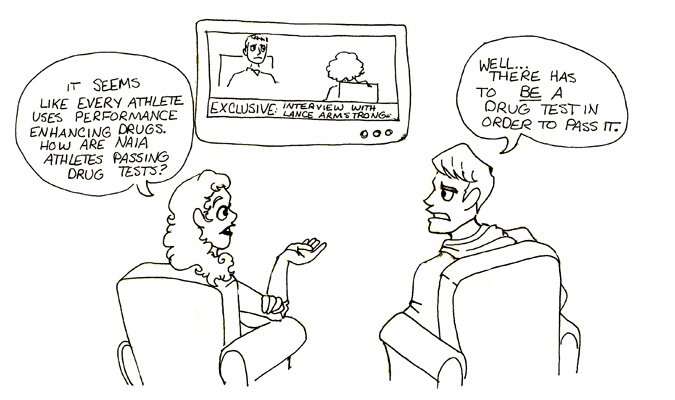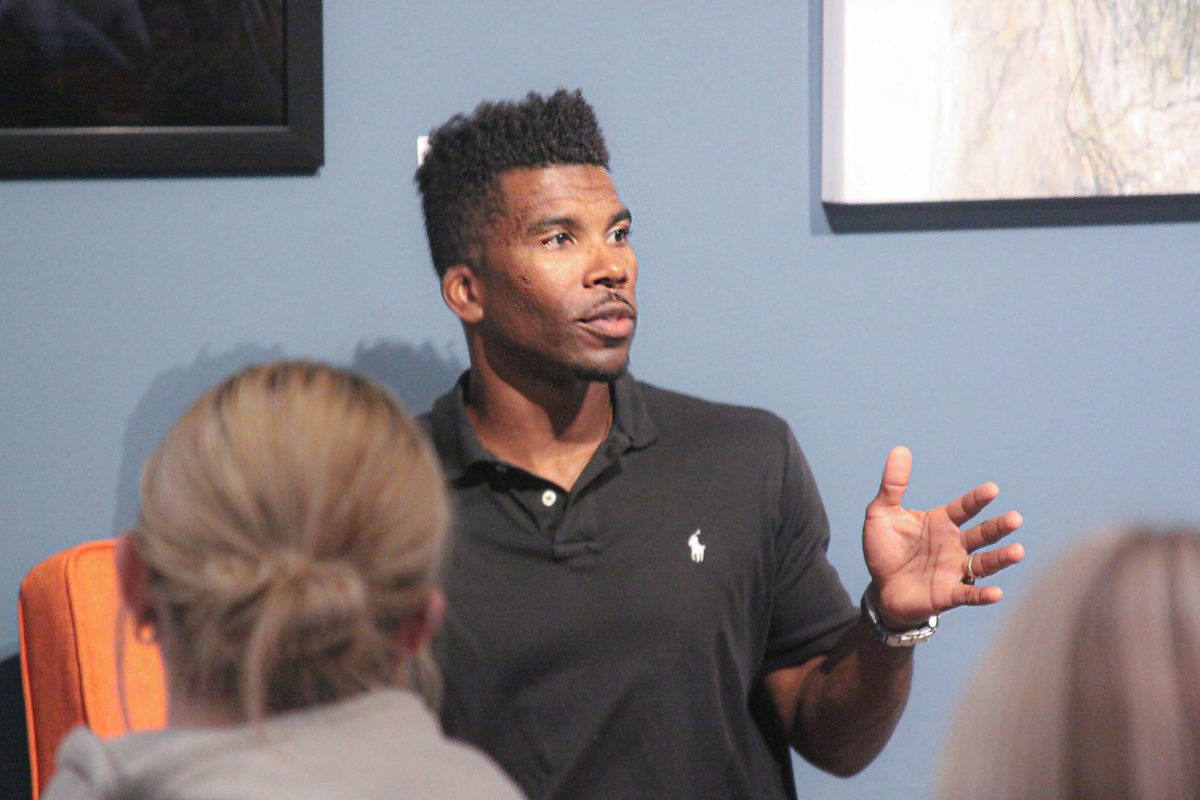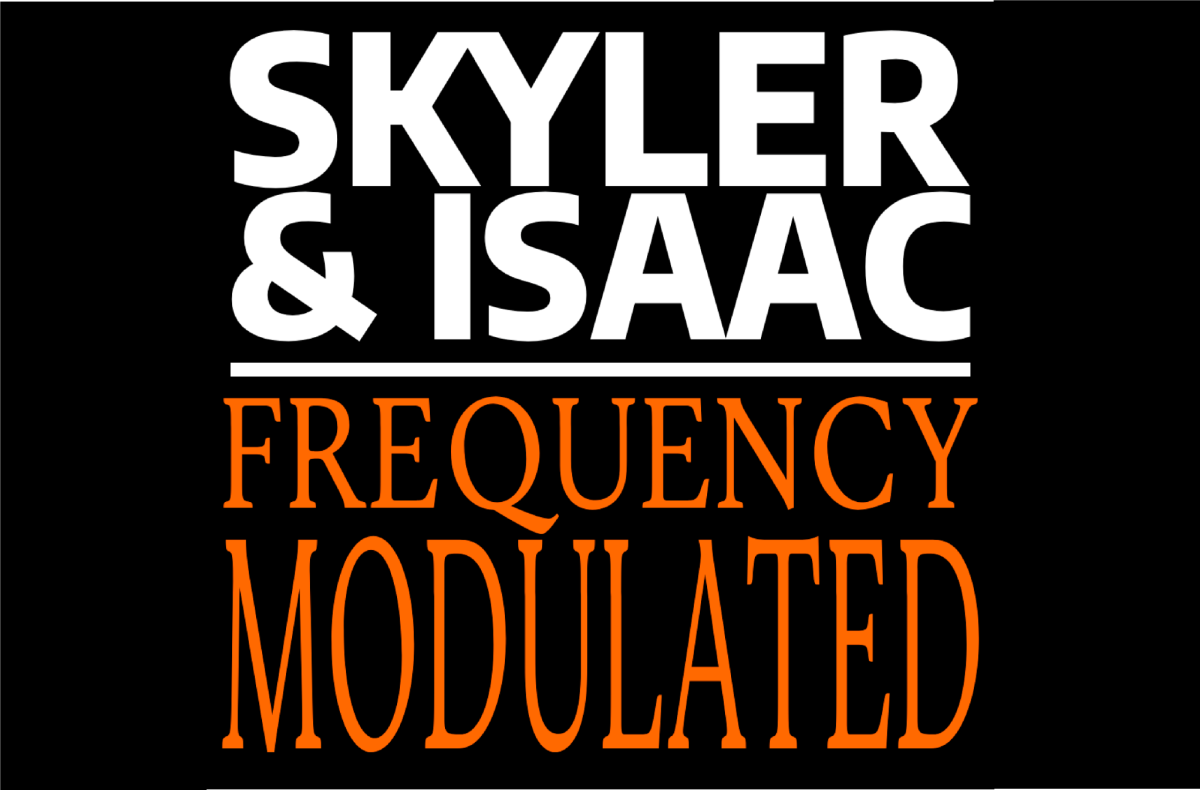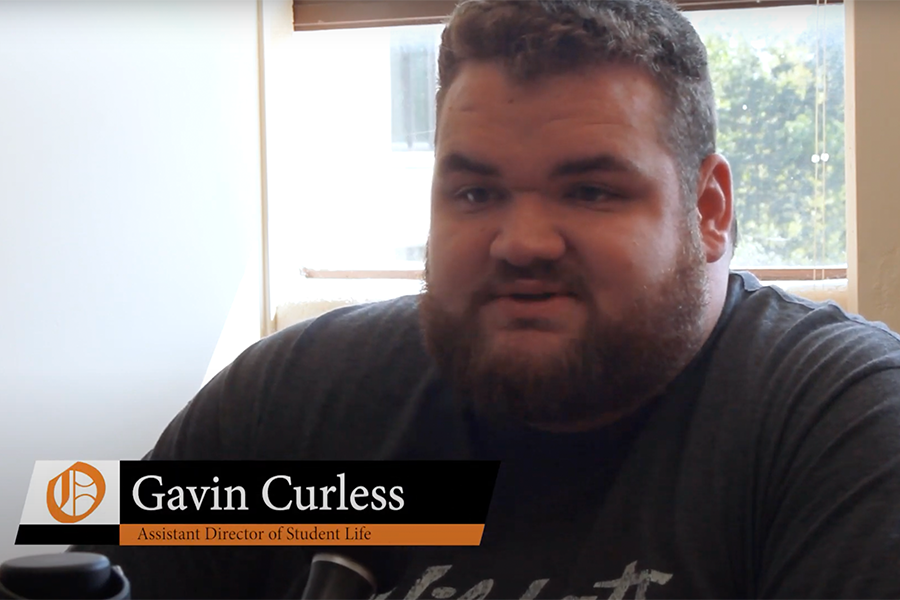The news of Lance Armstrong’s confession to performance-enhancing drugs, which stripped him of his seven Tour de France titles and an Olympic bronze medal, brings to surface many questions about the policies in place at institutions across the country, as well as our own university and the NAIA.
Conversations are buzzing with ways to prevent this from happening and how to find out who the “true” champions are.
Related Stories
Performance Enhancing Drugs have no place in sports
BU enforces drug tests despite no NAIA policy
Although the NAIA doesn’t require schools to have drug testing, Baker’s policy states that up to 12 student-athletes per month can be randomly chosen for testing.
However, there are probably many students on the Baker campus who are unaware of what the drug tests consist of, what the process is and what the implications are.
Baker has set an example for other schools in the conference and NAIA to follow by instituting its own drug testing policy. While the testing may not seem like a consistent process or a big deal on our campus, the policy itself of having random testing is one step further than the NAIA has taken the issue.
There are some changes that could be made in order to make the drug testing process more effective, useful and preventative. The NAIA has been in existence since 1940, and there is still no answer or steps to prevent this increasing problem.
Starting with the NAIA, it would be beneficial to implement a policy for all schools to follow in order to cut down on what seems to be a growing problem in athletics.
For example, all student-athletes could go through a routine drug test at the beginning of their athletic season. This would be one the student-athletes would be aware of. However, a couple of unannounced drug tests in the middle of the season would likely prove to be the most beneficial. It may even be wise to test in the offseason, as that is often the time student-athletes take to improve before the season starts again.
While we don’t often see it at Baker, some NAIA athletes may find it easy to get away with performance enhancing drugs, as there is no policy on drug testing and the NAIA is on a lower stage than the NCAA or professional associations.
In today’s society, where athletes want to see results fast without putting in the work, doping could be seen as the easy way to accomplish something great. As champions of character, the NAIA should take further steps in preventing this problem. By consisting of honest athletes, the organization and its athletes will be better respected in the end.








